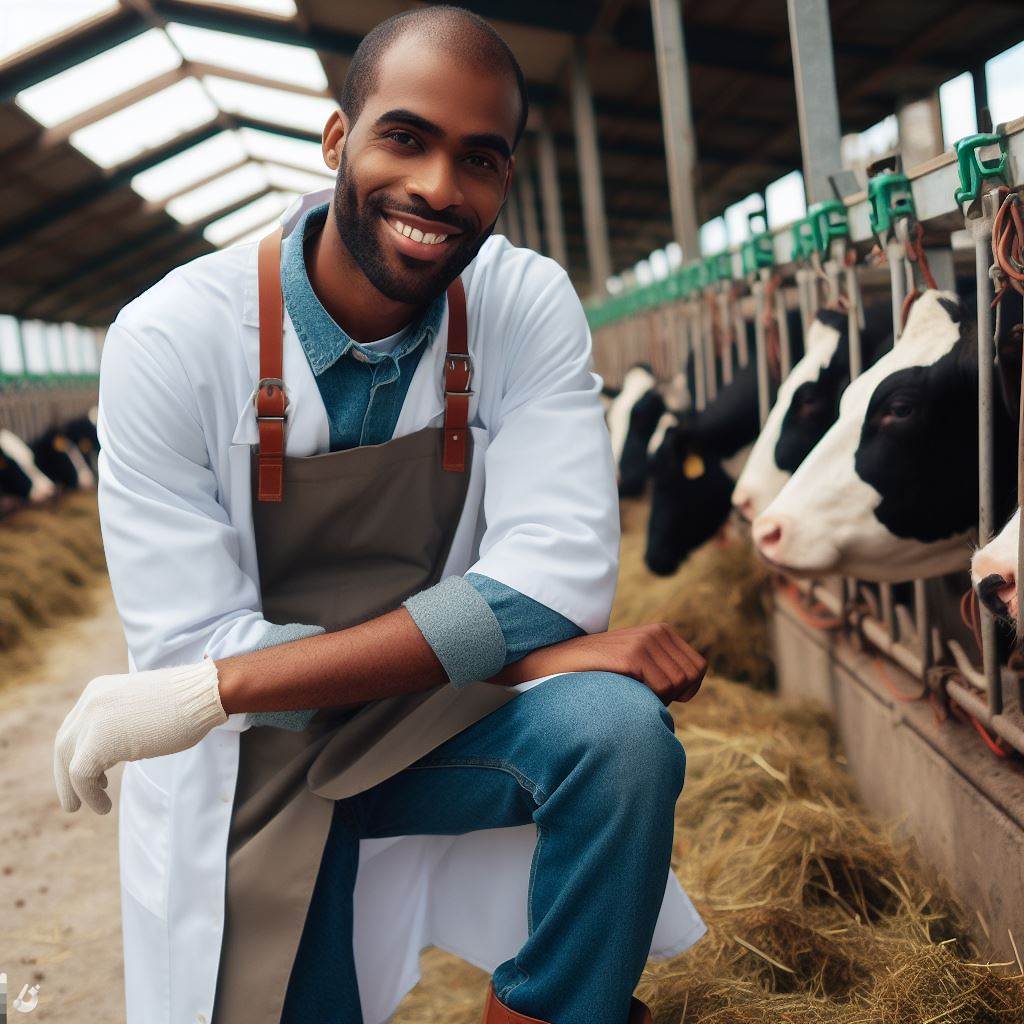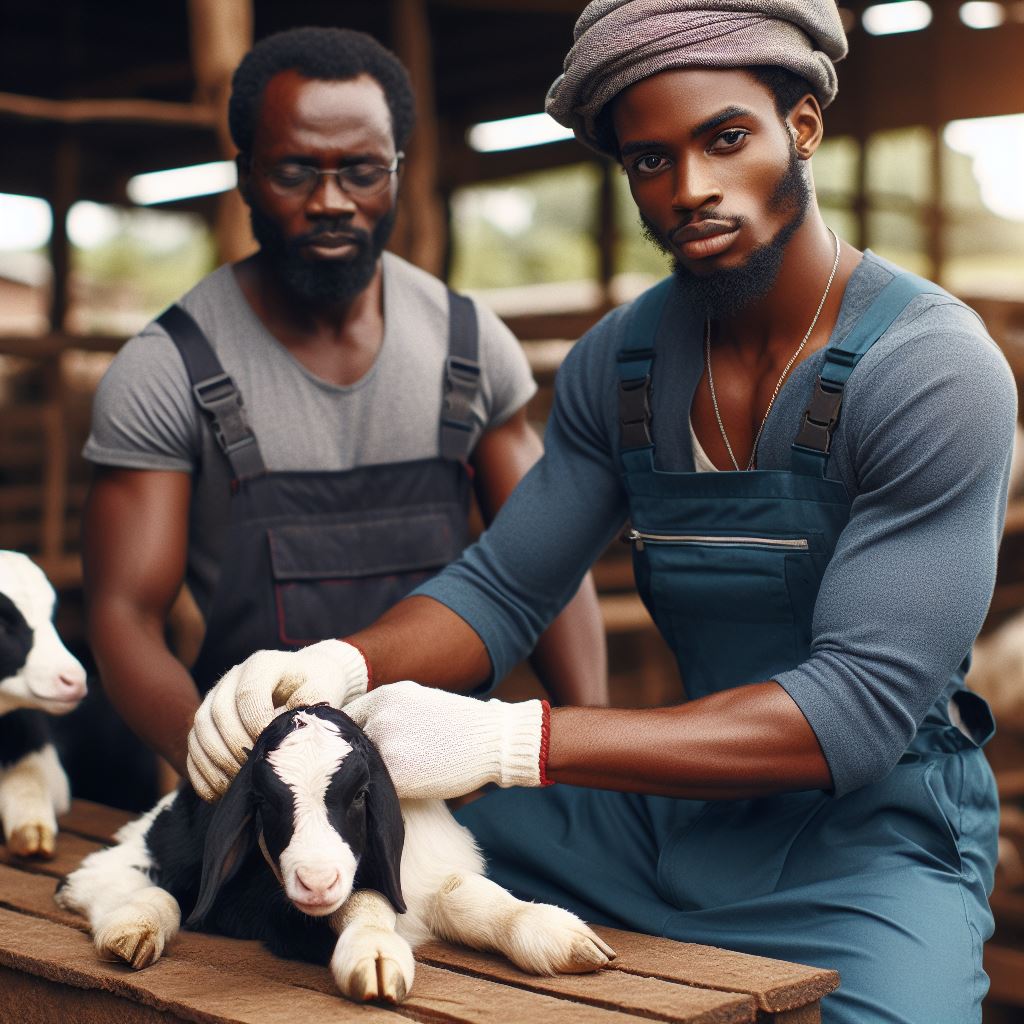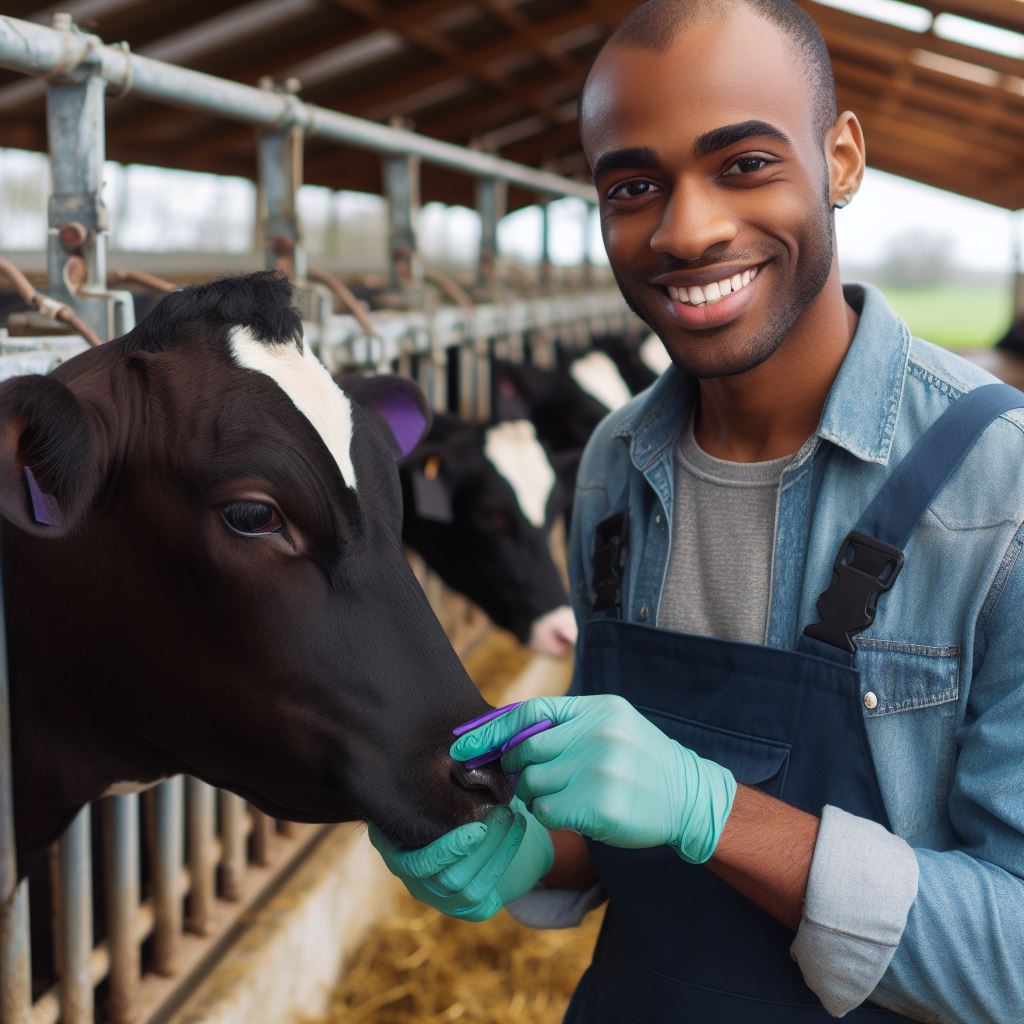Introduction
Sustainable Animal Production: Sustainable animal production involves raising animals in a way that balances environmental, economic, and social considerations.
In Nigeria, it is crucial for the country’s development, as agriculture contributes significantly to the nation’s GDP and employment.
Sustainable animal production practices are essential to ensure the protection of natural resources, such as water and land, and to address issues of climate change and food security.
Education plays a vital role in promoting sustainable animal production in Nigeria.
By providing farmers with access to training and information, they can learn about innovative techniques and technologies that reduce environmental impact while increasing productivity.
Education also provides farmers with a better understanding of animal welfare and the importance of ethical practices in livestock farming.
Additionally, education can empower farmers to adopt sustainable business models, such as value chain development and market linkages, which enhance economic viability and profitability.
By integrating sustainable animal production principles into the education curriculum, future generations will be equipped with the knowledge and skills necessary to continue practicing environmentally-friendly farming methods.
In fact, sustainable animal production is crucial for Nigeria’s agricultural sector, and education plays a significant role in promoting its adoption.
By prioritizing sustainable practices in education, Nigeria can enhance food security, protect the environment, and strengthen the livelihoods of farmers.
Current State of Animal Production in Nigeria
Overview of the animal production industry in Nigeria
- The animal production industry in Nigeria is a vital sector contributing significantly to the economy.
- Nigeria has vast resources and a diverse ecosystem suitable for animal production.
- It encompasses several activities, including poultry, livestock, and fishery production.
- Animal production plays a crucial role in providing food, employment, and income opportunities.
- There is a growing demand for animal products due to Nigeria’s increasing population.
Challenges faced in achieving sustainability
- Environmental impact: The animal production industry contributes to environmental degradation through deforestation and pollution.
- Health implications: Poor animal production practices can lead to the spread of zoonotic diseases and antibiotic resistance.
- Economic factors: Limited access to capital, high production costs, and inadequate infrastructure hinder sustainability efforts.
While the animal production industry in Nigeria plays a crucial role in the country’s economy, it faces numerous challenges in achieving sustainability.
These challenges include environmental impact, health implications, and economic factors.
1. Environmental impact
The animal production industry contributes to environmental degradation in Nigeria.
Deforestation occurs to create space for pasture and animal feed production, leading to habitat loss and biodiversity decline.
Additionally, the improper disposal of animal waste pollutes water bodies and contaminates the soil, causing further environmental damage.
2. Health implications
Poor animal production practices can have significant health implications for both humans and animals.
Unhygienic conditions in animal farms increase the risk of disease transmission, including zoonotic diseases.
These diseases can be transmitted from animals to humans, posing a threat to public health.
Moreover, the indiscriminate use of antibiotics in animal production can contribute to antibiotic resistance, making it challenging to treat infections effectively.
3. Economic factors
The achievement of sustainable animal production in Nigeria is hindered by various economic factors.
Limited access to capital and credit facilities makes it difficult for farmers to invest in modern and sustainable production systems.
Additionally, high production costs, such as feed, veterinary services, and infrastructure, further strain the industry.
Insufficient government support and inadequate policies create barriers for farmers in adopting sustainable practices, exacerbating the economic challenges.
In short, the animal production industry in Nigeria is significant for the country’s economy; however, achieving sustainability in this sector is a complex task.
The industry faces challenges related to environmental impact, health implications, and economic factors.
Addressing these challenges requires the concerted efforts of the government, farmers, and other stakeholders to implement sustainable practices, invest in modern technologies, and create supportive policies.
By focusing on sustainable animal production, Nigeria can ensure food security, protect the environment, and promote the overall well-being of its population.
Read: Industry Collaboration: Bridging the Gap Between Universities and Farms
Role of Education in Sustainable Animal Production
Integration of sustainable practices in the curriculum
Education plays a crucial role in promoting sustainable animal production in Nigeria.
By integrating sustainable practices in the curriculum, educational institutions can equip students with the necessary knowledge and skills to contribute to the industry.
The following are key aspects of the role of education in sustainable animal production:
Promotion of research and innovation
Education not only focuses on theoretical knowledge but also promotes research and innovation.
By encouraging students’ participation in research projects, educational institutions foster a culture of inquiry and problem-solving.
This enables students to develop critical thinking skills and contribute to finding sustainable solutions for animal production.
Furthermore, research findings can be utilized by the industry to improve their practices, leading to increased sustainability.
Collaboration between educational institutions and industry stakeholders
Collaboration between educational institutions and industry stakeholders is vital to bridging the gap between academia and real-world application.
Through exchange programs and internships, students can gain practical experience and understand industry needs and challenges.
Joint projects and initiatives establish a platform for continuous learning and knowledge exchange between academia and the industry, ensuring that education remains current and aligned with industry practices.
Basically, education plays a significant role in promoting sustainable animal production in Nigeria.
By integrating sustainable practices into the curriculum, fostering research and innovation, and encouraging collaboration between educational institutions and industry stakeholders, the country can build a sustainable animal production sector for the future.
Transform Your Career with Expert Guidance
Get personalized mentorship consulting that’s tailored to your unique path. Our expert advice is actionable and exclusive.
Get StartedIt is imperative for educational institutions to prioritize these aspects to ensure that students are equipped with the necessary skills and knowledge to contribute to the industry’s sustainability efforts.
Through a holistic and collaborative approach, education can drive positive change and transform the animal production sector in Nigeria.
Read: Career Opportunities in Animal Production in Nigeria

Learn More: Introduction to Wildlife Management in Nigeria
Find Out More: Horticultural Therapy Programs in Nigeria
Success Stories in Nigerian Education
Examples of educational institutions prioritizing sustainable animal production
- Implementation of sustainable practices in teaching methods,
- Facilities and resources dedicated to sustainable animal production education.
Accomplishments and positive impact observed from these initiatives
Nigerian educational institutions have made significant progress in prioritizing sustainable animal production.
One notable example is the University of Agriculture in Abeokuta, which has incorporated sustainable animal production principles into its curriculum.
Students are taught not only the technical aspects of animal production, but also the importance of environmental preservation and conservation.
This approach helps students develop a strong foundation in sustainable practices that can be applied in their future careers.
In addition to incorporating sustainable practices into teaching methods, educational institutions in Nigeria have also dedicated facilities and resources specifically for sustainable animal production education.
Basically, Nigerian educational institutions have made commendable efforts in prioritizing sustainable animal production through the implementation of sustainable practices in teaching methods and the establishment of dedicated facilities and resources.
The achievements and positive impact of these initiatives are evident in the knowledge and skills of graduates, as well as the overall development of Nigeria’s agricultural sector.
These success stories serve as a beacon of inspiration for other institutions and contribute to the global sustainability of animal production.
Read: Overcoming Challenges in Animal Breeding Research in Nigeria
Find Out More: Community Involvement in Wildlife Management in Nigeria
Delve into the Subject: Water Management Solutions for Livestock Farms
Challenges and Opportunities for Nigerian Education System
Facing several challenges, the Nigerian education system struggles to ensure sustainable animal production education.
This section will discuss the key challenges and opportunities that need to be addressed for improving the quality of education in Nigeria.
Funding constraints and limited resources
Nigerian schools and educational institutions often face financial constraints, leading to insufficient resources for sustainable animal production education.
Inadequate funding results in outdated facilities, lack of essential equipment, and inadequate learning materials.
This restricts practical learning opportunities and limits the overall effectiveness of education in this field.
Moreover, limited resources hamper the development of relevant curricula and the introduction of innovative teaching methodologies.
To overcome these challenges, the government should allocate more funds to the education sector, specifically targeting animal production programs. Increased funding would enable the provision of necessary resources, fostering an enriched learning experience.
Need for continuous professional development for educators
Animal production educators in Nigeria must receive continuous professional development opportunities to stay updated with emerging trends and advancements in the field.
Many educators lack awareness of the latest practices, technologies, and methodologies relevant to sustainable animal production.
Continuous professional development programs, workshops, and conferences should be organized to provide educators with the necessary knowledge and skills.
By enhancing their competence, educators can deliver high-quality education and instill a passion for sustainable animal production among students.
Government policies and support
Government policies play a crucial role in shaping the education system. The Nigerian government should develop policies that prioritize sustainable animal production education.
These policies should focus on curriculum development, infrastructure improvement, and teacher training.
Additionally, the government needs to provide adequate support and resources to educational institutions offering animal production programs.
This includes funding grants, scholarships, and access to relevant research and data.
Close collaboration between the government and educational institutions will lead to a more supportive environment for sustainable animal production education.
Collaboration and networking opportunities within the education sector
Creating opportunities for collaboration and networking within the education sector is vital for promoting knowledge sharing and resource utilization.
Educational institutions, industry professionals, and relevant organizations should collaborate to enhance the quality of animal production education.
Establishing networks facilitates the exchange of best practices, ideas, and research findings.
It also encourages the formation of partnerships with local and international organizations, allowing access to additional resources, expertise, and funding opportunities.
Basically, the challenges faced by the Nigerian education system in providing sustainable animal production education are significant.
However, by addressing funding constraints, emphasizing continuous professional development, formulating supportive government policies, and fostering collaboration, Nigeria can unlock its potential and enhance the quality of education in this critical field.
Read: Challenges Faced by Students in Animal Production in Nigeria
See Related Content: Challenges in Livestock Production and Solutions
Conclusion
Sustainable animal production is crucial for the future of Nigerian agriculture and the overall well-being of the nation.
It is essential to ensure that the livestock sector is environmentally friendly, economically viable, and socially responsible.
By adopting sustainable practices, such as organic farming, rotational grazing, and proper waste management, the negative impacts of animal production can be minimized.
Education plays a vital role in promoting animal production. It equips individuals with the knowledge and skills needed to implement sustainable practices and make informed decisions.
Educational institutions should incorporate relevant courses and training programs on animal production into their curriculum.
This will enable students to understand and appreciate the importance of sustainable agriculture and develop practical solutions to tackle environmental challenges.
In the end, there is an urgent need to prioritize sustainable animal production in the Nigerian education system.
Efforts should be made to raise awareness, provide training opportunities, and develop research initiatives in this field.
The government, educational institutions, and stakeholders must collaborate to develop policies and strategies that promote sustainable animal production practices.
By doing so, Nigeria can establish itself as a leader in sustainable agriculture and pave the way for a greener and more prosperous future.




